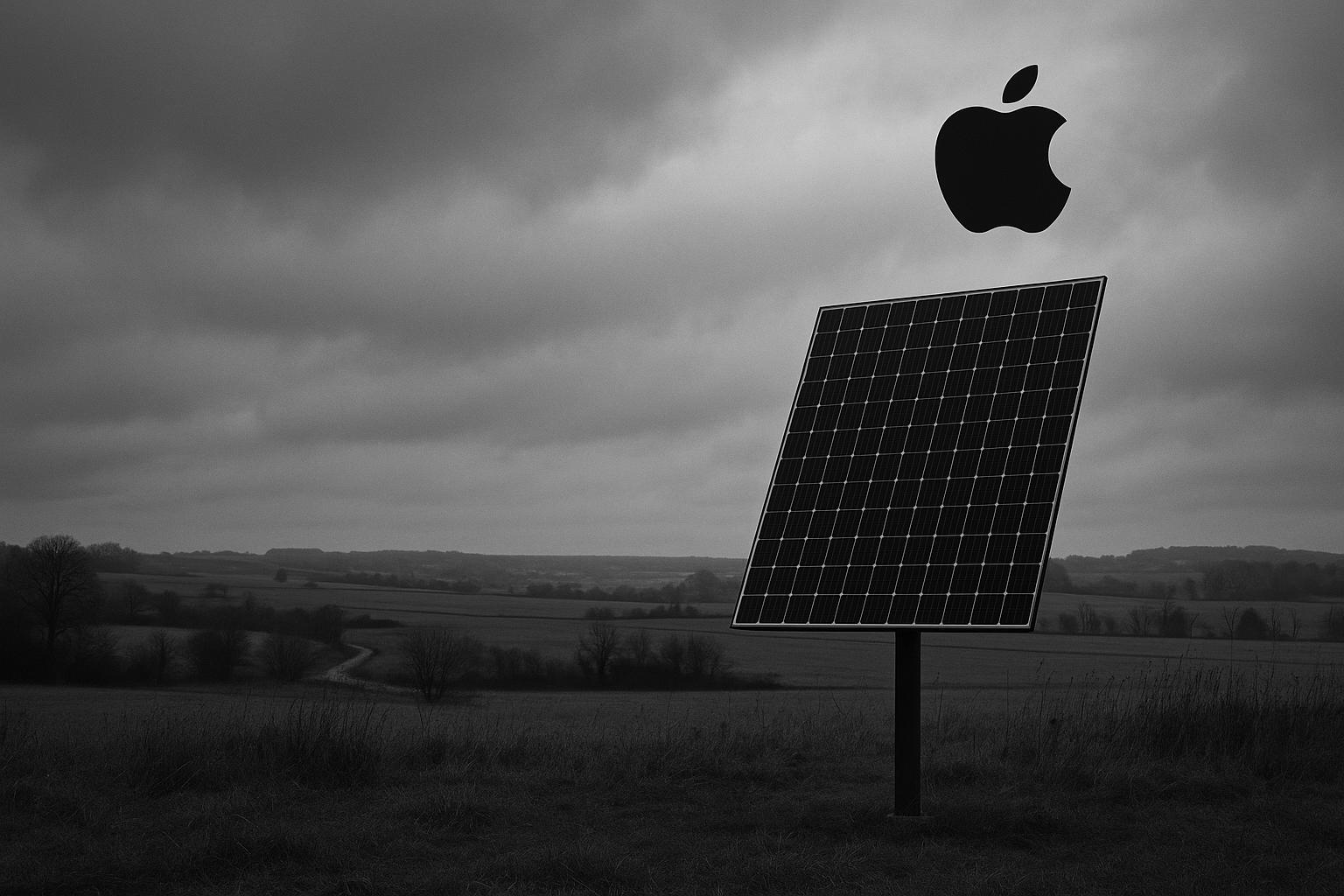Apple has announced a major expansion of its investment in renewable energy across Europe, marking a significant step in the company’s efforts to reduce the carbon footprint associated with powering and charging its devices. The tech giant is supporting the development of several large-scale solar and wind farms in Greece, Italy, Latvia, Romania, and Poland, complementing its earlier projects such as the Castano solar farm near Segovia, Spain, which began operating earlier this year and has the capacity to power about 76,500 households.
These new renewable projects are set to add 650 megawatts of clean energy capacity to European electrical grids, generating over 1 million megawatt-hours of electricity annually by 2030. While the electricity produced will feed into national grids rather than Apple’s operations directly, the company said the amount generated will be used to help meet its corporate climate goals. Specifically, Apple aims to match 100% of the electricity used by its customers across Europe, including the UK, to charge and power their devices by the end of the decade.
Apple’s ambitions form part of a wider drive to become carbon neutral throughout its entire value chain—from its own operations to its supply chains and the products it sells—by 2030. Lisa Jackson, Apple’s vice president of environment, policy and social initiatives, highlighted the company’s commitment, saying, “By 2030, we want our users to know that all the energy it takes to charge their iPhone or power their Mac is matched with clean electricity.”
According to Apple’s own calculations, energy used by customers to charge devices accounts for about 29% of the company’s overall greenhouse gas emissions, excluding data centre electricity, which is already sourced from renewable energy. To reach its European renewable energy goals, Apple estimates it will need to bring 3,000 gigawatt-hours of clean power online annually. The new projects announced will produce over 1,000 gigawatt-hours per year, covering roughly a third of that target. Apple also plans further renewable investments beyond 2030.
The company is prioritising projects in countries with higher carbon intensity grids, such as Poland, to maximise environmental benefits. Among the initiatives, Apple has signed long-term power purchase agreements with several projects including a 110MW solar farm in Greece, a 129MW portfolio of wind and solar developments in Italy, a 40MW solar array in Poland, a 99MW wind farm in Romania, and a 110MW solar farm in Latvia. So far, the company's involvement has helped unlock financing worth $600 million (£450 million) for these clean energy projects.
However, Apple has recently faced scrutiny over some of its environmental claims, with a German court ruling that adverts describing the Apple Watch as carbon neutral were misleading. The company is also facing a class action in the US over similar allegations. In response, Ms Jackson told PA news agency that Apple welcomes scrutiny and strives for transparency in explaining how it intends to reach carbon neutrality. She emphasised that despite the challenges, Apple remains committed to communicating the work it does on climate issues honestly, even if it means refraining from using certain marketing terms like “carbon neutral.”
Apple’s renewables push comes amid a broader context where many companies are scaling back climate action, while political consensus over climate policy is fracturing in the US, UK, and parts of Europe. Jackson noted that Apple approaches clean energy projects as business decisions where there is a financial rationale, not just a moral one. “We invest in businesses, and those businesses are investing, not out of the goodness of their heart, but because they see an opportunity to do what businesses do, which is make money selling the energy that comes from these projects,” she said.
By expanding its clean energy capacity and backing projects that contribute to more secure and sustainable electricity grids across Europe, Apple aims to deliver on its environmental commitments while supporting local economies and communities. The company’s strategy reflects a long-term vision where corporate climate responsibility is integrated with commercial viability in transitioning to a low-carbon economy.
📌 Reference Map:
- Paragraph 1 – [1], [4]
- Paragraph 2 – [1], [2], [4], [5], [7]
- Paragraph 3 – [1]
- Paragraph 4 – [1]
- Paragraph 5 – [1]
- Paragraph 6 – [1]
- Paragraph 7 – [1]
- Paragraph 8 – [1]
Source: Noah Wire Services
